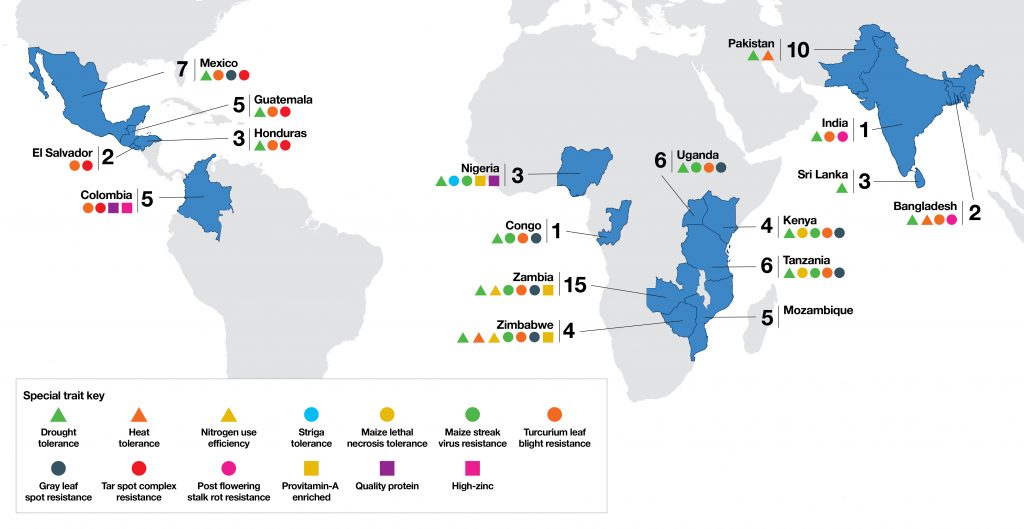
MAIZE Annual Report 2019

The CGIAR Research Program on Maize (MAIZE) is proud to release our 2019 Annual Report.
Around the world, the COVID-19 crisis has emphasized the need to strengthen food systems while improving the food security and livelihoods for the most vulnerable, especially the resource-constrained smallholder farmers.
In 2019, MAIZE made great advances in the development of improved stress-tolerant maize varieties, with enhanced genetic gain and novel genetic diversity and tools. National partners and seed companies across Africa, Latin America and Asia released 82 unique CGIAR-derived maize varieties. In addition to high yield, these elite varieties are stacked with multiple traits needed by the smallholder farmers to protect their crops from drought, heat and diseases. These MAIZE varieties also included nine nutritionally-enriched varieties with improved protein quality, provitamin A and high kernel zinc.

MAIZE partners have continued their battle against fall armyworm in both Africa and Asia on several fronts, including awareness creation and capacity development on integrated pest management (IPM) based fall armyworm control through various stakeholder workshops, intensive research on breeding for native genetic resistance to the pest, agro-ecological management, and assessment of the economic impact of the pest in selected countries in Africa.
From research on value chains and improved nutrition to conservation agriculture and scale appropriate mechanization, MAIZE in 2019 continued to focus on sustainable intensification of maize-based cropping systems in sub-Saharan Africa, South Asia and Latin America where maize plays a critical role in food and nutritional security, income and livelihoods of millions of resource-constrained smallholders and consumers.
This work is only possible through the generous and continued support from our funders, in particular, the CGIAR Window 1 and 2 funding, besides several Window 3/bilateral projects. MAIZE receives W1&W2 support from the Governments of Australia, Belgium, Canada, China, France, India, Japan, Korea, Mexico, Netherlands, New Zealand, Norway, Sweden, Switzerland, United Kingdom (DFID), United States (USAID) and the World Bank.
We would like to extend our sincere thanks to all the MAIZE partners, funders and stakeholders for their active participation, hard work, and support, especially during these challenging times. As we look back upon our outcomes and achievements in 2019 in this Annual Report, we must also look towards the current events associated with the COVID-19 pandemic and the present and likely impacts on maize-based agri-food systems especially in sub-Saharan Africa, Latin America and Asia. MAIZE continues its deepest commitment to work together with our partners towards a more food secure future for all.
B.M.Prasanna
Director of the CGIAR Agri-Food Systems Research Program on Maize
Read the full MAIZE Annual Report 2019 here.
